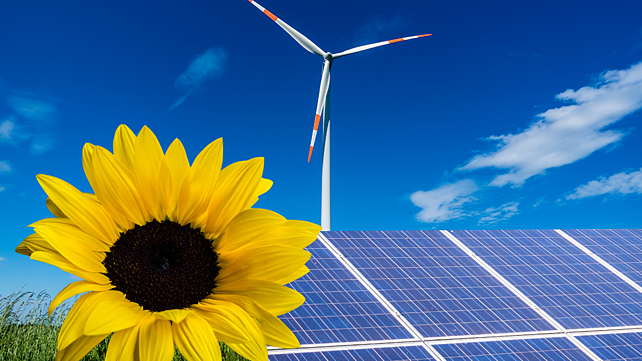
Declassified US government documents reveal the US considered military action on Arab nations during the oil embargo of the 70s. It was frustrated at being held hostage by a bunch of third-world nations, who controlled the world’s oil supplies. The oil embargo itself was triggered by the Yom Kippur War against Israel. It was possibly the first instance of the oil producing majors choosing to use their control over oil, a critical, globally needed energy source, as a ‘weapon’.
It is now fairly well accepted that the 21st century will see a shift away from fossil fuels towards electrification from predominantly renewable sources, including for making ‘clean hydrogen’. This shift needs to happen not just for economic reasons but for the pressing need to limit climate change and enhance survival of life on earth as we know it. This shift requires access to new minerals and natural resources including rare-earths and lithium. These are concentrated in a few countries that are mostly different from the oil majors, China being a prominent one. This potentially creates the seeds of a new energy resource ‘game’, as was played by the oil producing majors in the 20th century.
It is interesting to note that the oil majors never really became major automotive industry leaders in the 20th century. That mantle was worn by three blocks – the Americans, the Europeans and the Japanese – in alphabetical order. This split between the dominant resource producers and the dominant consumers, mediated by the technology prowess of the three blocks in producing automobiles, remained a hallmark of the 20th century.
China’s Authority
At the dawn of the present century, China presciently realised electrification of transportation was an imperative for limiting climate change, and this afforded it the opportunity to dominate the global automotive industry of the 21st century. After all, electrification of the drivetrain implied a complete reworking of the heart of the automobile. China went ‘all-in’ to create a massive, state-funded ecosystem for electric mobility and energy storage, dominating the entire value chain from mining to components to vehicles to charging infrastructure and end-use products.

In about a decade, and with an estimated $150 billion of investments, it has not only achieved a leading position in a century-old industry, but it also controls the value chains underlying the new transportation and energy industries. This is quite unlike the 20th century, where the automotive value chain was more dispersed amongst nations.
China today processes 72% of the world’s cobalt and 61% of its lithium. By 2010, it controlled 95% of the world’s rare earths (used for magnets for motors, among other things). It produces more EVs than any country, and almost 98% of EV buses in the world today.
In recent years, accelerating action to address climate change, tightening policies around fossil fuel use and mandates from several countries to ban fossil-fuel-only vehicles after a specified year has caused the automotive industry in the developed world to dramatically embrace electrification. Covid-19 has amplified calls, and funding, for fighting climate change. But this comes nearly a decade after the Chinese have captured a dominant position in the entire value chain.
Scarce Resources
Coupled with the supply chain disruptions caused by COVID-19, this has led to a scramble to secure resources, access to and control of which is concentrated in a few countries. The World Bank estimates that by 2030, world output of lithium, cobalt and graphite needs to jump by 450% over 2018 production levels. Recycling will help a bit but nowhere near being enough.

This reality is marked by three issues – first, an awning investment gap to explore and produce the required minerals; two, a desire to escape a Chinese stranglehold on resources, and lastly, an utter lack of consideration for where is the most bang (spark?) for the buck. On the first issue, easier access to finance for climate-friendly projects and with better ESG (Environmental, Social and Governance) norms for the underlying (mining) projects is being facilitated, led by commitments from sovereign wealth funds of wealthy nations and recently, development finance institutions and even private equity firms.
The second issue has led to interesting partnerships between the private and public sector but from nationalistic perspectives. Governments are stepping in to assist the private sector in securing resources. Examples include the US Defense Department’s grants to Mountain Pass, a rare-earth mining company and Japan Oil Gas and Metals National Corporation’s (JOGMEC) investment in a deep-sea cobalt mining company.
But these still share a nationalistic fervour to protect local industries, which in turn begs consideration of the third issue. Local electrification in one country will not protect it from the ill-effects of global climate change. Electrification of 20-year-old fleet vehicles in a developing nation will help mitigate climate change far more than transforming fleets that are at Euro-IV to Euro-VI equivalent for the most part, if they can be made financially viable. Fair priced access to such resources can aid achieve financial viability.
A New Compact
These manoeuvres to secure and control access to ‘new age’ minerals seem to be ignoring the lessons of the oil age. Oligopolies are unlikely to look beyond their own economic interests and ensure fair priced access to these resources, where they can have the most impact. They can even precipitate wars. Can the collective of nations think holistically on how to shepherd access to such resources, where they can have the most mitigating impact against climate change? Do we need a new compact amongst nations and between the private and public sectors to ensure the wise use of these resources that does not ignore market principles? After all, when collective survival itself is at stake, the only war we need to wage is against the deep-rooted impulse of self-interest amongst nations and people.
About the author: Kartik Gopal is Senior Electric Vehicle Industry Specialist at International Finance Corporation, World Bank Group
(The views expressed herein are the personal views of the author and not that of the World Bank Group.)